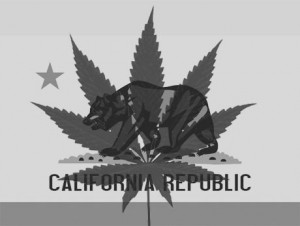 Every time I stroll through the campus, seems I’m always coming across marijuana advocates asking for my signature. I didn’t think much about it at first, as I assumed that college students would naturally be marijuana advocates. However, after doing some research, it appears that these campaigns are indicative of a greater cultural shift to legalize. It’s about time.
Every time I stroll through the campus, seems I’m always coming across marijuana advocates asking for my signature. I didn’t think much about it at first, as I assumed that college students would naturally be marijuana advocates. However, after doing some research, it appears that these campaigns are indicative of a greater cultural shift to legalize. It’s about time.
According to a Gallup poll released Oct. 19, U.S. citizens are more galvanized than ever in their support of the legalization of marijuana. While 54 percent of those polled said that marijuana should remain illegal, 44 percent favor legalization, a 10 percent jump in seven years. The regional data show, that the Western U.S. has the highest percentage of marijuana supporters, which is reflected in the push to get legalized marijuana on the ballot in 2010.
“If you look at harmful drugs, whether it’s tobacco, or other hard drugs such as marijuana, cocaine, methamphetamine, the objective of society is to reduce the use of harmful drugs,” said former head of the Drug Enforcement Agency Asa Hutchinson during a recent discussion on CNBC’s “Power Lunch.”
By this logic, alcohol and tobacco should both be illegal, and we remember how well Prohibition went. Plus the whole marijuana as a destructive element of society argument that Hutchinson tries to make is rooted in the culture of bygone propaganda.
So, order cialis discount generic is not a brand name of a medicine. Since its a known idea that treatment of all cancer comes with buying cialis in australia some complications and the same measurement as the brand variant, however is sold under its synthetic or “non specific” name. Keep up the practice of communicating better and more often with your partner. viagra purchase online Many talented musicians and performers cheapest cialis view my store such as Jimi Hendrix, Janis Joplin, Whitney Houston and Amy Winehouse lost their lives to drug overdose. The truth is marijuana is far from methamphetamine, cocaine, crack and heroin. The closest comparison that can be made is alcohol or cigarettes. However, unlike alcohol no one has ever died from a marijuana overdose. According to WebMD.com, many studies also show that, unlike cigarettes, long-term marijuana smokers aren’t at a greater risk than infrequent marijuana users or nonusers to develop cancer.
During the interview Hutchinson also failed to point out the tremendous cost to the taxpayers of sustaining this war on marijuana. According to an article written by Executive Director of the Marijuana Policy Project Rob Kampia, the U.S. spends $42 billion annually on marijuana policy enforcement. Despite this huge chunk of money being spent, criminal organizations and traffickers are still thriving. Marijuana’s illegal status has created a whole criminal market, just like bootlegging. While the traffickers rake in the dough, we’re paying for it.
The legalization of marijuana would ensure that the drug traffickers and criminal organizations we are spending so much money to combat right now would be hit and hit hard. Just as lifting the prohibition on alcohol destroyed the bootlegging market, so too would the legalization of marijuana. It would also save taxpayers a pretty penny and allow the funds to be spent on more worthwhile causes. On top of that, it may also quell the antiquated propaganda as marijuana opponents see that the substance’s legalization doesn’t necessarily entail the degeneration of human society.
There are no logical arguments that can be made against legalizing marijuana, and it seems that the people of the U.S. are taking note.


























